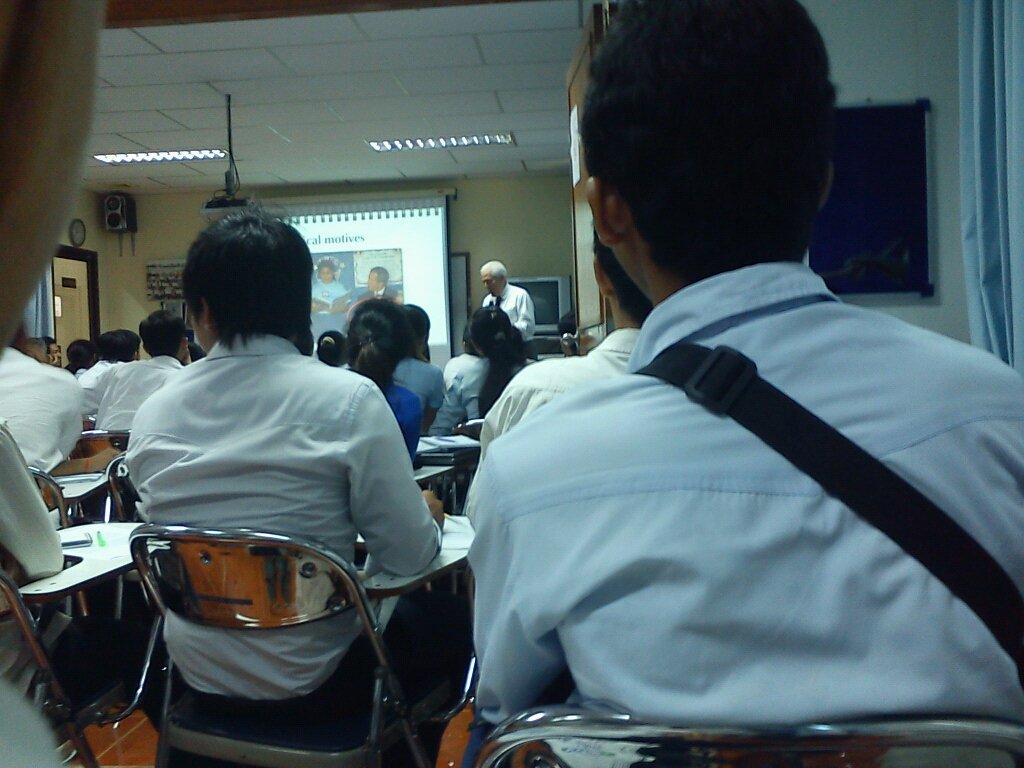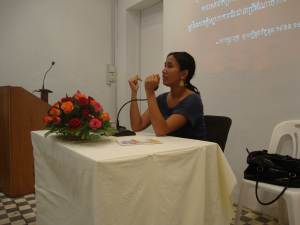That’s a great chance for me yesterday to have chance joining a lecture by Ralph Begleiter, director (Center for Political Communication) and former CNN world affairs correspondent.
I have learnt a lot in the 4 hours and a half lecture. The three main topics were being discussed in the lecture are: 1. Media “independence” – what it means/how it works, 2. Is Seeing Believing? – Photo ethics, photo manipulation, and 3. Broadcast News/ Broadcast News Documentary.
This lecture was hosted at the Department of Media and Communication (DMC), and attended by most of DMC students and lecturers.
Below is a short biography of Ralph Begleiter extracted from the website of University of Delaware:
07/01/2011 By: Dara SaoyuthRalph Begleiter is Director of the Center for Political Communication at the University of Delaware. He brings more than 30 years of broadcast journalism experience to his award-winning instruction in communication, journalism, and political science. During two decades as CNN’s “world affairs correspondent,” Begleiter was the network’s most widely-traveled reporter. He has worked in some 97 countries on all 7 continents. He continues to travel with UD students, and conducting media workshops in several countries under the auspices of the U.S. Department of State. Begleiter teaches undergraduate courses in “Broadcast News,” “History of TV News Documentary,” “Broadcast News Documentary,” “Global Media & International Politics,” and special courses such as a study abroad program in Antarctica and South America in photojournalism and geopolitics (2003, 2005), in Turkey (2008) studying the “Geopolitics of the Mediterranean,” and “Road to the Presidency” during election years. He also directs the university’s “Global Agenda” public speaker program, and in 2006 and 2009 his “Global Agenda” class met weekly by videoconference with students in the Middle East to discuss cross-cultural and media issues. In 2002 he took UD students to Cuba for the 40th anniversary of the Cuban Missile Crisis.
At CNN during the 1980’s and 1990’s, he covered U.S. diplomacy, interviewed countless world leaders, hosted a global public affairs show, and co-anchored CNN’s “International Hour.” In 1998, Begleiter wrote and anchored a 24-part series on the Cold War. He covered historic events at the end of the 20th century, including virtually every high-level Soviet/Russian-American meeting; the Persian Gulf Crisis in 1990-91; Middle East Peace efforts; and many UN and NATO summit meetings. Since coming to UD, he has hosted the Foreign Policy Association’s annual “Great Decisions” television discussion series, an international affairs program on Public Broadcasting System stations. in 1994,he received the Weintal Prize from Georgetown University’s Graduate School of Foreign Service, one of diplomatic reporting’s highest honors. In 2008, the Delaware Press Association named him “Communicator of Achievement.” In 2009, he earned the University of Delaware’s College of Arts & Sciences “Excellence in Teaching” award.
He holds an Honors B.A. in political science from Brown University, an M.S. in Journalism from Columbia University, and is a member of the National Honor Society, Phi Beta Kappa.

